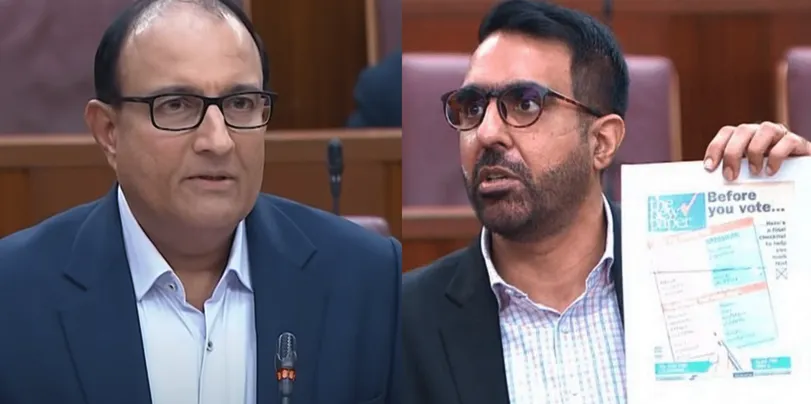OP-ED - WP's Pritam Singh failed high court bid a legal strategy or distraction?
Battle for perception.

Opposition leader and Workers’ Party (WP) chief Pritam Singh has failed in his attempt to have his upcoming trial heard in the High Court, after he sought to compare his case to that of former transport minister S. Iswaran.
His lawyers filed a criminal motion to move his case, set for October 14, 2024, from the State Courts to the High Court.
Singh’s argument focuses on broader legal principles and public interest considerations, but is this legal strategy a justified pursuit of fairness, or is it simply a distraction from the core issue of alleged dishonesty?
State Courts vs. High Court
Singapore’s legal system allows cases to be transferred to the High Court either by the Public Prosecutor or by application from the accused.
In Iswaran’s case, the Prosecution justified the transfer due to the broad implications of Section 165 of the Penal Code, which affects public servants. Singh, on the other hand, faces charges under Section 31(q) of the Parliament (Privileges, Immunities, and Powers) Act, related to alleged dishonesty to a parliamentary committee.
Singh’s legal team argues that the interpretation of Section 31(q) holds even greater public interest, as it impacts how MPs and parliamentary inquiries are conducted. They claim that this case has wider consequences, potentially affecting ordinary citizens summoned by parliamentary committees.
A flawed comparison?
Critics argue that Singh’s comparison to Iswaran’s case is flawed.
While Iswaran’s charges involved complex legal precedents and public service implications, Singh’s case is more straightforward—allegations of lying to a parliamentary committee. Critics maintain that the State Courts are fully capable of handling such matters without the need for elevation to the High Court.
The move to transfer the trial is seen by some as an attempt to add unnecessary gravitas to a case that is, at its core, about dishonesty.
Elevating it to the High Court, they argue, does not change the nature of the charges but merely distracts from the real issue—whether Singh lied to Parliament.
Public interest or political theatre?
Singh’s team has emphasised the public interest aspect of the case, arguing that the interpretation of Section 31(q) has broader implications for parliamentary procedure. However, critics see this as an overreach, arguing that while Singh’s case may impact parliamentary conduct, it doesn’t warrant a High Court trial. The Prosecution’s rejection of Singh’s request underscored this, stating that his case, while "high-profile," does not meet the threshold of significant public interest.
Some suggest that Singh’s framing of the trial as a political struggle is a tactic to deflect from the straightforward legal facts.
Critics argue the focus should remain on the integrity of parliamentary proceedings, which Singh allegedly undermined.
Battle for perception
Singh’s failed bid for a High Court trial is seen by some as a strategic distraction rather than a pursuit of justice.
While his legal team paints the case as one of significant public interest, critics argue that the State Courts are fully capable of delivering a fair trial.
Ultimately, the question is whether this legal maneuver was about fairness or about creating a sense of importance.
If Singh truly believes in his innocence, the venue of the trial should not matter. As critics note, justice, like truth, doesn’t need a grand stage—it just needs to be told.
In the end, Singh’s legal theatrics may serve only to distract from the core issue—his alleged dishonesty in Parliament.

